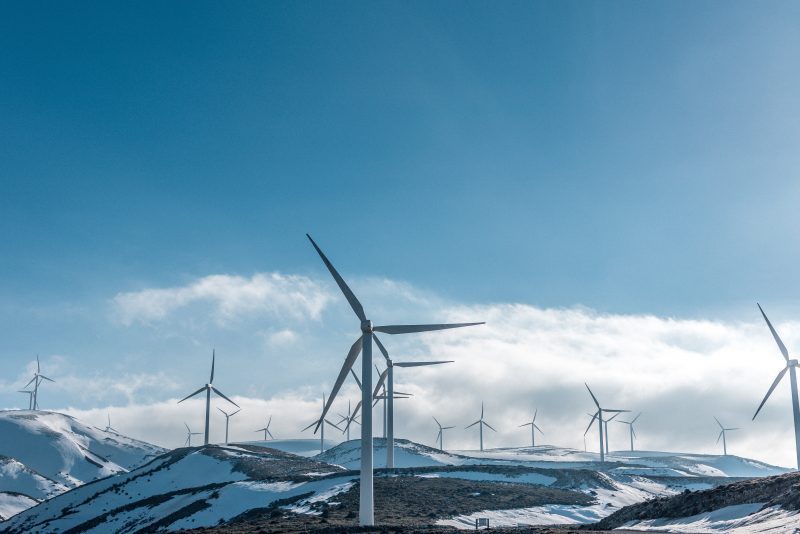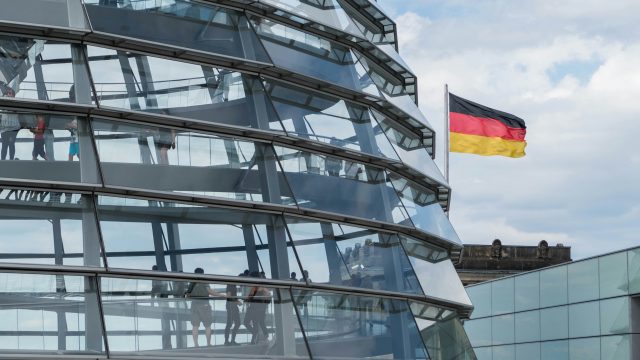A better future won’t happen without better industrial policy
As the Labour Party’s £28bn green investment pledge goes the way of the dodo we revisit the reasons for a green and fair industrial strategy

It seems almost too obvious to say, but the transition to a fair green economy won’t happen by itself. It requires smart policy, real commitment – and lots of investment. Governments have a vital role to play in the delivery of all of these, and if our legislators don’t lead the way with ambition and political will, green economies simply won’t happen.
That’s why it’s so disappointing that the UK Labour party is ditching its flagship £28 billion manifesto commitment to a fair green economic transition. It’s an obvious own goal that seemingly has little upside for the party, and certainly none for the planet. As such we’re setting out why the GEC believes that strong and effective industrial policy is an essential step towards the creation of a better future.
In the United States, the Inflation Reduction Act is the kind of green structural policymaking that delivers benefits for people and the planet. As described by the US Treasury Secretary, Janet Yellen, the IRA is designed to boost “economic growth by increasing labour supply, raising productivity, and reducing inequality and environmental damage.” Eighteen months on from its passage, it’s clear that the UK and other countries need to be doing more to accelerate investment in clean and green sectors, or risk being left behind.
“ Financially, consumers and communities will benefit from pioneering developments in strategic industries, future-proofed green jobs rooted in communities, cheaper home energy bills, and greater energy security.”
The IRA provides an estimated $400bn to incentivise clean energy, support electrification and energy efficiency measures, reduce methane emissions, promote domestic manufacturing and supply chains, and address environmental justice.
This investment is designed to both deliver cheaper energy prices for the public, and also encourage more sustainable businesses. By driving down the cost curve for clean technologies, the Biden administration hopes to spur innovation and investment to alleviate the cost of energy crisis, create new green jobs, and drive down US carbon emissions. Goldman Sachs estimates that in the US around $3 trillion of private investment will be leveraged into renewable energy technologies such as wind, wave and solar.
This transition can't happen without government
With the costs of tackling climate change estimated to be in the trillions, this transition will require action from governments and businesses. Governments don’t have to bear all the costs of transition alone. By setting clear commitments and long-term commitments such as mandatory net zero targets, governments can allow businesses to plan, invest and strategize towards a well-understood, commonly-shared future. And while the outlay seems expensive, this is more than covered by the potential savings as well as the many positive returns that create a better society.
Financially, consumers and communities will benefit from pioneering developments in strategic industries, future-proofed green jobs rooted in communities, cheaper home energy bills, and greater energy security. Cleaner air, better transport systems, and fewer climate deaths are just some of the potential health benefits. And a plan to manage the decline of dirty unsustainable sectors and to alleviate the negative impacts on the most vulnerable will make sure that no-one will be left behind – even those whose current livelihoods depend on the fossil fuel industry, like mine workers.

However, flip-flopping on policies and sending mixed signals can only undermine business confidence, slow investment and extend the misery of many citizens. This risks creating a future with costs unfairly borne by the most marginal and businesses seemingly insulated from contributing – one where the profits are privatised but the costs are borne by the public. This is why large regulatory programmes like the IRA and the European Green Deal are vital in realising the long-term inevitability to the green transition.
Businesses are to ready invest but need leadership and commitment
As well as the moral case to support the transition to a green economy, there is also an economic opportunity that can support more inclusive long-term prosperity and the health of the planet. Recently over 100 businesses from across the UK signed an open letter to the British Prime Minister making this case. “We are ready to invest, but we need your leadership and commitment to the green economy—now, more than ever.”
For the CBI net zero means better business, and indeed green investment is likely to further benefit sectors where the UK has actual or potential comparative advantage, for example off-shore wind, electric vehicles, and wave power.

One thing is clear: there will be a decarbonised economy, and electrification of everything from transportation to heating to agriculture is well underway. The only remaining question for policymakers is – do you want to be an early adapter to this new reality, or merely dragged along in the wake of those smart and ambitious enough to get out in front? We’re now a year and a half on from the US’s landmark IRA legislation. The current UK government has done less than nothing and the Labour Party – the presumed heir apparent – has now taken a swan dive off a popular and vote winning platform and onto the concrete.
“ The laws of physics won’t change so the rules of the economy must.”
Policymakers should always look to make choices that optimise benefits for both the long term and the short term. That’s where the green economy comes into its own, and other governments have already taken notice of the IRA and are following suit. The EU is planning its own €250 billion package, the Green Deal Industrial Plan, in response to the IRA, while Canada will spend around $60 billion on its own clean energy subsidy plan.
The UK Government, however, is yet to announce any new green or sustainable investment package at all, and risks being left behind. Revisiting the relationships, rights and responsibilities between governments, businesses and people is critical as we face our planetary limits and as inequality and distrust in governments is increasing. The opposition needs to stay the course and connect with millions of people who believe that Britain needs rebuilding by presenting a green fair industrial strategy as a response.
- Jean McLean, GEC


